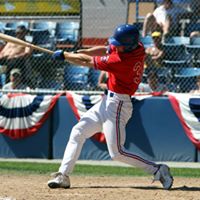You never
know when you’ll begin your throwing action - At the first sign of a forward weight shift, your
subconscious uses your throwing arm to counterbalance your weight shift. Until your
subconscious it senses your lower body is your center of balance, you continue
using your throwing arm for balance. At the point where your body is back in
balance, your subconscious frees your throwing arm to complete your delivery.
We don’t know of any Coach who knows how to teach a
Pitcher to move down the mound and into their foot plant at the exactly same
rate all the time. Even a fraction of a second difference from one pitch to the
next translates to the Pitcher missing their last pitch release point by a ½
inch and their location by 3 inches. Missing
your target by 3 inches means, at the highest levels, the Pitcher gives their
Opponent an opportunity to drive the ball.
You begin
your throwing action at the same time all the time - Sustainability comes from using one rotation at the
same time on every pitch that’ll force your subconscious to spontaneously take
your throwing hand through the same productive path.
By teaching Pitchers to end your front leg lift using
your lower body for balance, the Sustainability Network allows the Pitcher to
rotate their body into their foot plant at the same point all the time which, to
their body back in balance, uses their subconscious to spontaneously bring
their throwing hand through the same tiny release window.
Sustainability comes from using a Pitcher’s throwing
arm not for offsetting a forward weight shift, but to bring their body back to
balance after they rotate out of your lower body balanced front leg lift.
Skip Fast,
Professional Pitching Institute
Professional Pitching Institute
Sustainability Network Team Leader
Web: www.propitchinginstitute.com
E-mail: skip@propitchinginstitute.com
Sustainability Network: propitchinginstitute.slack.com
E-mail: skip@propitchinginstitute.com
Sustainability Network: propitchinginstitute.slack.com
Cell or Text: 856-524-3248
Copyright
© 2017
The Pro
Pitching Institute.













